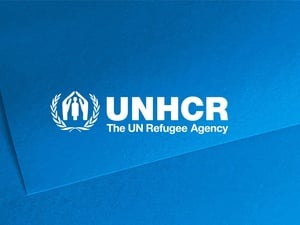UNHCR calls for stronger safeguards in EU proposal on asylum transfers to third countries
UNHCR calls for stronger safeguards in EU proposal on asylum transfers to third countries

BRUSSELS – The UN Refugee Agency (UNHCR) is urging EU lawmakers to reinforce safeguards in a European Commission proposal that could significantly affect how asylum-seekers are transferred to countries outside the European Union.
On 20 May, the European Commission published a proposed revision to the Asylum Procedure Regulation (EU 2024/1348), which aims to change the conditions under which EU Member States could consider sending asylum-seekers to so-called safe third countries (STCs) outside of the EU where people could seek and obtain protection.
The proposal would give Member States greater leeway to transfer asylum-seekers to third countries they consider safe. The proposal introduces three different ways for Member States to apply the safe third country concept: on the basis of a connection between the asylum-seeker and the third country (such as family links or previous residence in the country); due to the fact that the asylum-seeker transited through a safe third country on their way to the EU; or on the basis of an agreement or arrangement with a safe country which has agreed to receive them.
While primary responsibility lies with the state where a person arrives and seeks protection, refugees do not have an unfettered right to choose their asylum country. UNHCR understands the difficulties countries face when asylum-seekers move from one country to another. In some situations, and with robust protective measures and guarantees in place, asylum-seekers may be transferred to a safe third country where they can access asylum procedures and receive the protection they need.
At the same time, UNHCR stresses that strong safeguards must be applied when sending asylum-seekers to a safe third country. UNHCR believes that any transfer of asylum seekers between countries is best based on a legally binding, public agreement which outlines state responsibilities in relation to the protection of those being transferred. In the safe third country, transferred asylum seekers would need to receive a full and fair review of their asylum claim in its substance, alongside access to other rights in line with the 1951 Refugee Convention, its 1967 Protocol and international human rights law. Equally importantly, countries should not use this approach to avoid their responsibility to provide asylum on their own territory. UNHCR warns that increasing transfers to safe third countries risks weakening the right to seek asylum in the EU – which would undermine the very foundation of the EU’s asylum system and be detrimental for the international refugee protection regime more broadly.
UNHCR welcomes certain elements in the proposal.
One is the proposal’s provision for transfers to take place based on a connection between people seeking asylum and the proposed receiving country. Although not required under international law, UNHCR reiterates its position that a meaningful connection is the most sustainable and reasonable basis for transferring asylum-seekers to safe third countries – a position which the Commission took note of in the proposal. This helps ensure that asylum-seekers are transferred to countries where they have better prospects to stay – and reduce the likelihood of further onward movements.
The UN Refugee Agency also welcomes the proposed new obligation for Member States to inform the European Commission and other EU countries before they conclude agreements with third countries for the transfer of asylum-seekers. This requirement will improve transparency in decisions made by individual Member States.
On the other hand, other elements in the proposal present complexities and require further review. UNHCR is deeply concerned about the proposal to remove the automatic suspension of transfers while an appeal is pending. If this change is adopted, asylum seekers could be removed before their cases are fully reviewed, including as regards the safety of the third country in their individual circumstances – a move that risks violating the principle of non-refoulement, which prohibits returning individuals to any country where they may face serious risks to their life or freedom.
The proposal also introduces the possibility to transfer asylum-seekers to countries with which they have no connection. Such transfers are more complex and need extra safeguards – both to protect individual asylum seekers and also in light of the need to ensure that such movements do not undermine international solidarity and responsibility sharing.
In addition, as mentioned above, any transfers to a safe third country must not lead to international responsibilities being shifted onto other states, must ensure transferred asylum seekers are able to access their rights, and are best governed in UNHCR’s opinion through a legally binding, public agreement. Importantly, UNHCR does not consider that mere transit through a safe country is, in the absence of these safeguards and protections, an appropriate ground on which to apply the safe third country concept.
UNHCR stands ready to further advise, support and assist the European Parliament, Member States, and the European Commission in identifying mechanisms to use the safe third country concept which are effective and in line with European and international law. In this spirit, UNHCR will be releasing further guidance on transfers of refugees and asylum seekers and more detailed commentary on the Commission’s proposals to help guide the negotiations.
For more information, please contact:
- In Brussels: Christine Pirovolakis, [email protected], +44 79 31832164








